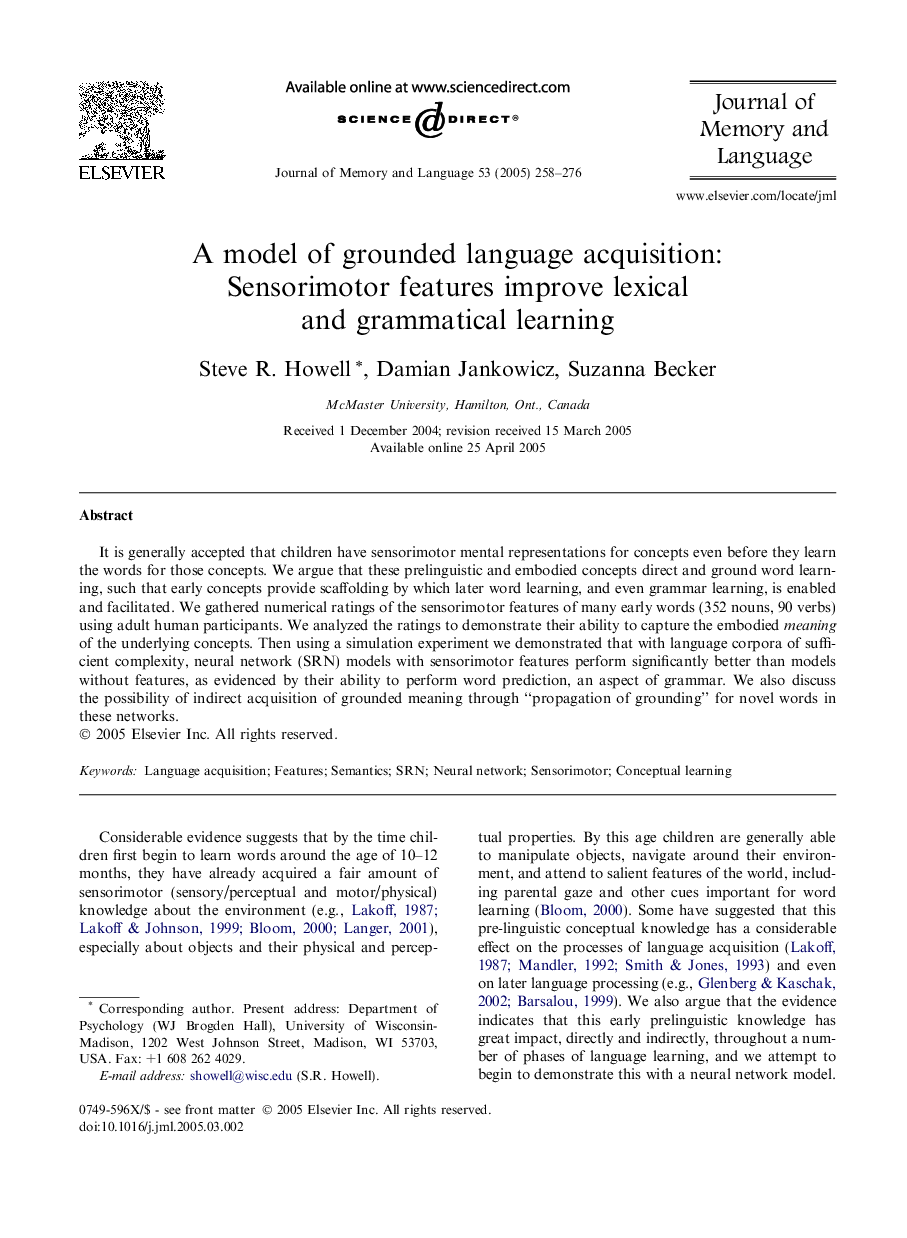| Article ID | Journal | Published Year | Pages | File Type |
|---|---|---|---|---|
| 10459802 | Journal of Memory and Language | 2005 | 19 Pages |
Abstract
It is generally accepted that children have sensorimotor mental representations for concepts even before they learn the words for those concepts. We argue that these prelinguistic and embodied concepts direct and ground word learning, such that early concepts provide scaffolding by which later word learning, and even grammar learning, is enabled and facilitated. We gathered numerical ratings of the sensorimotor features of many early words (352 nouns, 90 verbs) using adult human participants. We analyzed the ratings to demonstrate their ability to capture the embodied meaning of the underlying concepts. Then using a simulation experiment we demonstrated that with language corpora of sufficient complexity, neural network (SRN) models with sensorimotor features perform significantly better than models without features, as evidenced by their ability to perform word prediction, an aspect of grammar. We also discuss the possibility of indirect acquisition of grounded meaning through “propagation of grounding” for novel words in these networks.
Related Topics
Life Sciences
Neuroscience
Cognitive Neuroscience
Authors
Steve R. Howell, Damian Jankowicz, Suzanna Becker,
